Inclusive college, called inclusive post secondary education (IPSE), is not new to Georgia, and there is a positive trend of more and more universities developing IPSE. There are 311 IPSE programs at universities across the country, with eight in Georgia (and a ninth on its way). The expansion of IPSE is demonstrating how university administrations and faculty are beginning to understand the importance, and the value, of inclusive college for people with intellectual disabilities.
There is no one design for IPSE, and existing programs vary in length and activities. Generally, IPSE includes a combination of academic coursework, career development, independent living, and socialization components. Georgia State University’s (GSU) IPSE IDEAL (Inclusive Digital Expression and Literacy) is a novel Georgia IPSE which, unlike others in Georgia, has a special focus on the arts.
IDEAL is a two-year program that includes academic coursework, career development, job skills training, mental health counseling, career counseling, and psychosocial groups. IDEAL offers four areas of focus: film, art, music, and theater. IDEAL graduates earn a Certificate of Career Readiness.
IDEAL is currently in its fifth year, after they began accepting students in January 2017. Starting small, GSU IDEAL nearly doubles in size every year. Starting in Fall 2022, IDEAL will be welcoming 5-7 new students, totaling to 20-22 students active in the program.
Students in IDEAL audit curriculum courses with a focus on technology use, digital and media literacy, communication skills, success in the college environment, self-determination, and career development. Students also audit elective courses in their area of focus. These classes are offered to general undergraduate students, and IDEAL students participate in these classes alongside their peers without intellectual disabilities. They have access to all the same student organizations and resources as the general student population, another way that students interact with their peers without intellectual disabilities. Many IDEAL students are involved in activities at the student recreation center or work at the campus movie theater.
Many of the graduates of IDEAL are employed in art-adjacent spaces, like customer service at museums and art spaces. “Eighty percent of our graduates are working or continuing their education with an average pay rate of $12/hour,” said Spenser Norris, IDEAL Project Manager.
Housed in the university’s Center for Leadership in Disability, IDEAL staff always reach out to make connections across the university to provide opportunities for students who express a special interest. IDEAL has made partnerships with the GSU football and soccer programs to support students interested in sports management and marketing—a popular interest in the program—that has led to employment in the field. “Several of our graduates work at Mercedes Benz Stadium,” said Norris.
IDEAL works with its students to reach their goals while in college and after they graduate. “We have a student exiting … this year who has a goal of getting a college degree,” said Norris, speaking about IDEAL second- year student Kyle Brooks. Norris continued, “Because he graduated from high school with a special education diploma, we have been supporting him to get his GED so that he can apply to a university.”
Speaking on what IPSE means to him, Brooks said, “I used to have an invisible shield to protect myself and was vulnerable when I first started the program. Now I feel comfortable, I’m getting straight A’s and walking around campus by myself. IDEAL has helped me grow to understand what the world really means.”
IDEAL graduate Deriq Graves has continued his studies at the Georgia Film Academy, a goal he set for himself while in IDEAL.
Across the state, IPSE has seen program funding decrease at both the federal and state level through changes in grant funding and policy changes to how funds are distributed.
Norris acknowledged the importance of funding IPSE saying, “We are always taking donations or looking for financial sponsorships to support students.” Funding is needed not only to support sustainability of IPSE but also for the expansion of IDEAL, as it sees lots of potential for expansion. “We can see a space for supported transition for students,” said Norris, “with offerings for an optional third or fourth year.”
Applications for Fall 2023 admissions will open in October or November of this year. For more information on the GSU IDEAL program, visit CLD.GSU.edu/IDEAL.
This piece is another in our series of articles highlighting Georgia’s IPSE programs.
